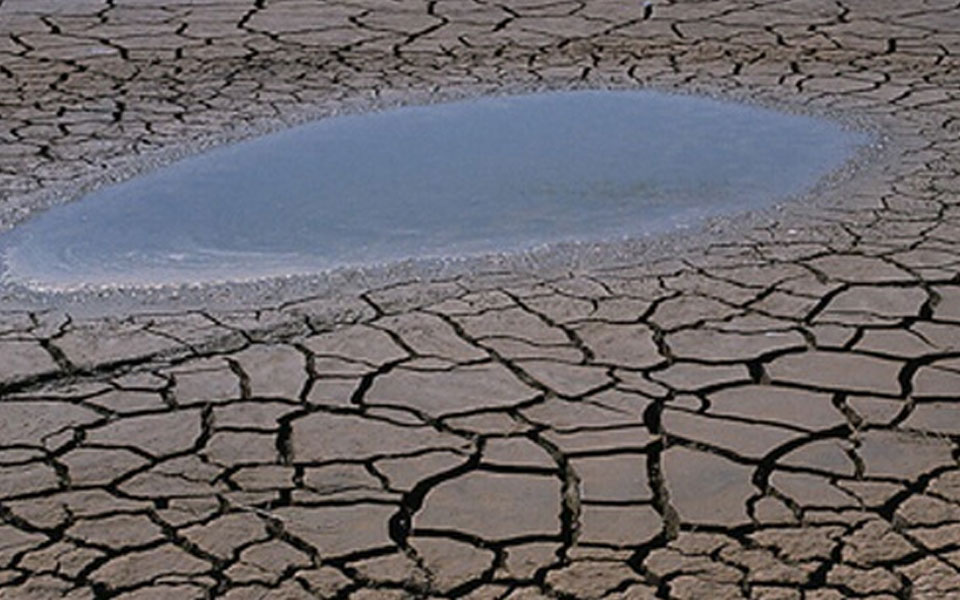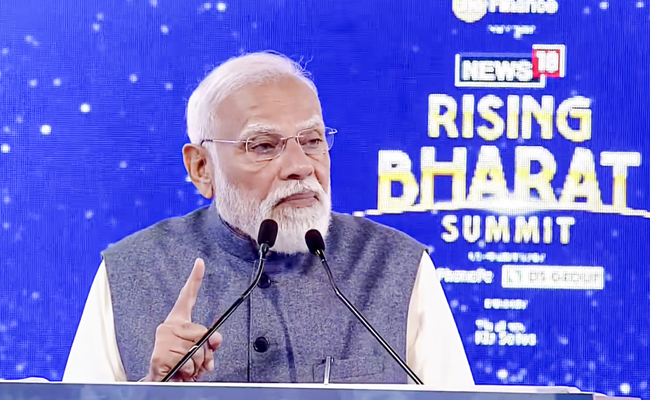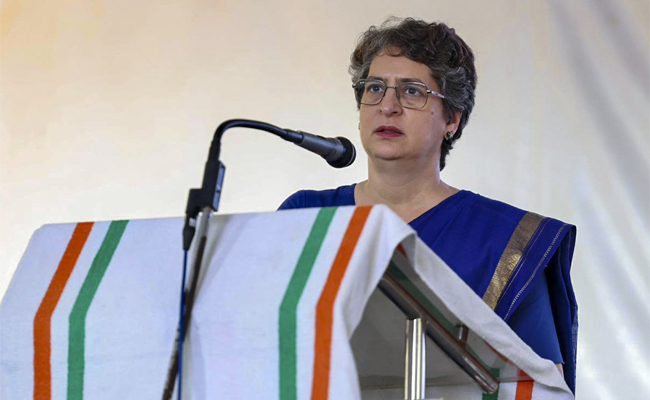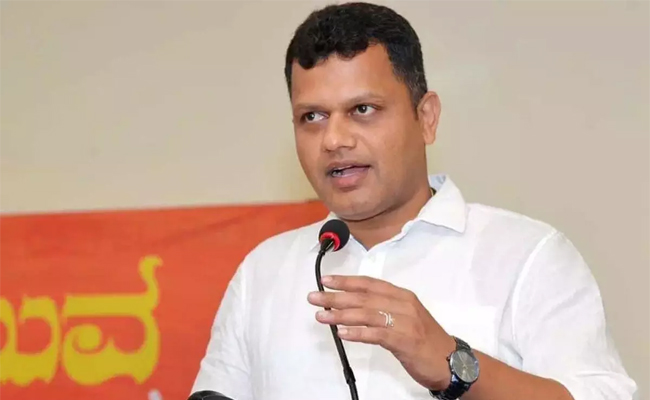The central government has cautioned that by 2020, many cities including Bengaluru will lose their ground water source completely. A report on Composite Water Management Index released by the centre indicates Bengaluru, Chennai, Hyderabad and other metropolitan cities with high population density would soon go totally dry in their ground water resource.
Experts on water have been warning about a water crisis in the making since long. If steps are not taken to recharge ground water level, the cities would have severe shortage of drinking water. A policy on rainwater harvesting being made compulsory has also been put in place. However, this has not helped the danger of no water in the near future.
The anxiety is not just about cities losing groundwater table, but rural areas too going almost dry with the table depleting every progressive year. Only in areas close to wetlands, the situation is better thanks to the measures initiated by the government. But the big cities are constantly under water distress during all seasons.
A lot more focused studies have to be conducted on the cause of groundwater table going so drastically down in cities. On the surface, concretization of cities and green cover being constantly reduced for every small developmental or work relating to infrastructure has led to this phase of serious water problems. Concrete and tar do not allow space for water to seep in to ground and be soaked by the soil. Recharge pits are hard to come by. Most of the lakes have been usurped by land grabbers to construct apartments and the remaining lakes have hardly any water left in them. There was a time when Bengaluru was home to more than 500 lakes and these were sufficient water sources for a city with a population of about 30 lakh. But as migration into Bengaluru increased, the city needed more water and the lakes were consistently dried up to make way for new money making real estate.
Today most of Bengaluru’s water comes from a long distance, and from faraway water reservoirs. This is the case of most big cities. Now Bengaluru having lost most of its water source, discussions are on to explore possibilities of pumping water from faraway Linganamakki reservoir. But people from that region are severely opposed to this idea and have taken out protest demonstrations in Sagar and other places to register their resistance.
The same protest was taken out by people in Dakshina Kannada when government proposed Yettinahole Project.
One of the main reasons for urban areas lose ground water is that apart from destroying the conventional water wells, lakes and other water bodies, the cities have been digging more borewells thus causing rapid depletion. And if the ground water table goes down to levels of drying, the situation would be very gory.
Areas like Kolar and Chikkaballapur do not get ground water even if they sink borewells down to 1,500 ft. This is a matter of severe anxiety.
According to NITI Ayog report, Karnataka is severely lagging behind in mechanisms to recharge ground water levels, in the entire nation. A state like Chhattisgarh has used up all the resources provided by the central government and has recharged its borewells to a good 100%, leaving no stone unturned. Telangana has achieved a 90% recharge level and Jharkhand has gone up to 50% on this.
And Karnataka lagging behind on this puts the state in high danger zone. The state has been able to recharge only 6% of its borewells. This is definitely the failure of the state government.
Though rainwater harvesting has been made compulsory in big cities such as Bengaluru and others, the implementation by local bodies has been far from satisfactory.
If rainwater harvesting was done with diligence, cities would have had better water levels in the ground. The state comes up with policies, but the officers from implementing agencies have to perform their duty on these policies being followed strictly by every citizen. But since this dedication towards implementation is lacking, policies are never effective. And an ineffective policy, no matter how good the intent is, would fall flat on ground reality.
Rain water harvesting being made compulsory in homes is not enough. Even public spaces have to be turned into zones of rain water harvesting and those measures need to be initiated without delay.
The whole world facing water crisis. But the onset of monsoon has brought us some respite. Hence we need to use rainwater more effectively and ensure it enters the ground than evaporating on surface. Even the NGOs need to work with great commitment for this apart from governments. The most significant role is that of citizens.
As for its role, the government as a larger body for protection of lakes and water resources, it has to stop the encroachment of lakes and water beds in urban and rural areas. The real estate mafia which has been consistently swallowing lakes has to be dealt with an iron hand. Ramaswamy Committee has revealed shocking facts about this in its report.
And as per this report, state government initiated encroachment clearance drive on water paths in the city but the work did not progress to the level of satisfaction. Even government offices have been built on dried lake beds. This has been a fine example of the total failure of state in this matter.
Many lakes that are still breathing their last few breaths are struggling to stay alive with silt filling up their water source. They need to be desilted to keep them alive. The government needs to exhibit strong political will on this front to ensure the cities do not go dry.
Let the Truth be known. If you read VB and like VB, please be a VB Supporter and Help us deliver the Truth to one and all.
New Delhi (PTI): Prime Minister Narendra Modi on Friday came down heavily on the Congress for the shirtless protest by its youth wing members at the AI Impact Summit recently, saying the opposition party can tear as many clothes as it wants, but his government will continue to work for the country's progress.
Addressing the News18 Rising Bharat Summit, Modi also said that the Congress did not just remove its clothes in front of foreign guests but also exposed its intellectual bankruptcy, asserting that the millennials have already taught the country's oldest party a lesson, and now Gen-Z is ready to do the same.
In an apparent jibe at Congress leader Rahul Gandhi, Modi said the opposition was unhappy seeing the statue of "Babbar Shers" (lions) installed atop the new Parliament building, but their own “Babbar Shers" were running away after facing the "shoes" of the general public.
Gandhi, the Leader of Opposition in the Lok Sabha, had said on February 24 that he was proud of the "Babbar Shers" of the Indian Youth Congress, who "fearlessly" raised their voice at the AI Summit.
"Congress ke Babbar Sher logon ki jute kha ke bhaag gaye (The 'lions' of Congress ran away after being hit by shoes by the public)," Modi said.
The prime minister was apparently referring to the protesting Youth Congress workers being heckled by some people at the AI Summit.
On February 20, a group of Indian Youth Congress (IYC) workers staged a dramatic protest inside Hall No. 5 of the summit venue in Delhi by removing their shirts to reveal T-shirts printed with anti-government slogans, triggering a political slugfest between the BJP and the Congress.
“Congress can tear as many clothes as it wants, but we will continue to work for India's development. Congress not just shed clothes at the AI Summit, it also exposed its incapabilities in front of foreign guests,” Modi said in his nearly 45-minute speech.
He said the AI Summit was a moment of pride for the entire nation, but unfortunately, Congress attempted to tarnish this national celebration.
"When the frustration and despair of failure weigh on the mind, and arrogance makes one's head spin, such a mindset emerges to defame the country," he said.
The prime minister also alleged that the Congress always takes refuge in Mahatma Gandhi to hide its failures, but tries to give credit to one family for anything good.
"People of our country welcomed every good step taken by our government, but the Congress only knows how to oppose everything. The votes of Congress are not stolen; rather, people do not consider Congress worthy of their votes. Millennials first taught a lesson to Congress, now Gen-Z is ready to do the same," he said.
Modi also said that in a democracy, the role of the opposition is not just about blindly opposing every move of the government, but presenting an alternative vision, and that is why the "enlightened public" of the country is "teaching a lesson" to Congress now.
In 1984, the Congress got 39 per cent of the votes and more than 400 seats. But its votes declined consistently in the subsequent elections, Modi said.
"Today, the condition of the Congress is such that it has more than 50 MLAs in just four states. Over the past 40 years, the number of young voters in the country has increased, but the Congress has clearly diminished," Modi said.
On the recent trade deals that India signed with foreign countries, Modi said the country has discovered its inherent strength and strengthened its institutions, which prompted developed nations to come forward and sign deals with India.
He also said that even after Independence, some people ensured that the colonial mindset remained for their own benefits.
"No country would have done trade deals with us had we not discovered our inherent strength and strengthened our institutions. Because of this, developed nations have come forward to sign trade deals (with India)," he said.
Modi also said that even after Independence, India was unable to break free from the mentality of slavery, for which the country is still paying the price.
"The latest example of this can be seen in the ongoing discussions on trade deals. Some people are shocked – ‘what has happened, how did this happen? Why are developed countries so eager to do trade deals with India?’ The answer is – a confident India is emerging from despair and frustration," he said.
Over the long span of history, centuries of slavery had instilled a feeling of inferiority, while the ideology imported from other countries deeply ingrained in society the notion that Indians were uneducated and subservient, the prime minister said.
"If the country was still mired in the despair of the pre-2014 era, counted among the 'Fragile Five', and gripped by policy paralysis, who would strike a trade deal with us?
"Over the past 11 years, a new surge of energy has flowed into the nation's consciousness. India is now striving to reclaim its lost potential," Modi said.
The prime minister also said that due to the recent series of reforms initiated by his government, the world's most powerful nations are now coming forward to sign trade deals with India.
"There was a time when India was only a consumer of new technology. But now we are not just developing them, but also setting standards," he said.
The prime minister also said that India's digital public infrastructure has become a subject of global discussion today, and every move India makes is closely watched and analysed across the world.
"The AI Summit was a clear example of this," he said.
The government's 'Viksit Bharat by 2047' is not a political slogan but an effort to correct the mistakes of the previous Congress governments by making India self-reliant, he said.
“So far, in every industrial revolution, India and the Global South largely remained followers, but in this age of artificial intelligence (AI), India is not only participating but is also shaping it. India now has its own AI startup ecosystem,” Modi said.
He also said the world is astonished that India, where around 30 million families lived in darkness until 2014, has now risen to become one of the top countries in solar power capacity.
India, where many cities had no hope of improving their public transport system, has now become the country with the world's third-largest Metro network, Modi said.
“The Indian Railways was known only for chronic delays and sluggish speeds, yet semi-high-speed connectivity like Vande Bharat and Namo Bharat has now become possible,” he said.
Nation-building never happens through short-term thinking; it is shaped by a long-term vision, patience and timely decisions, the prime minister added.





